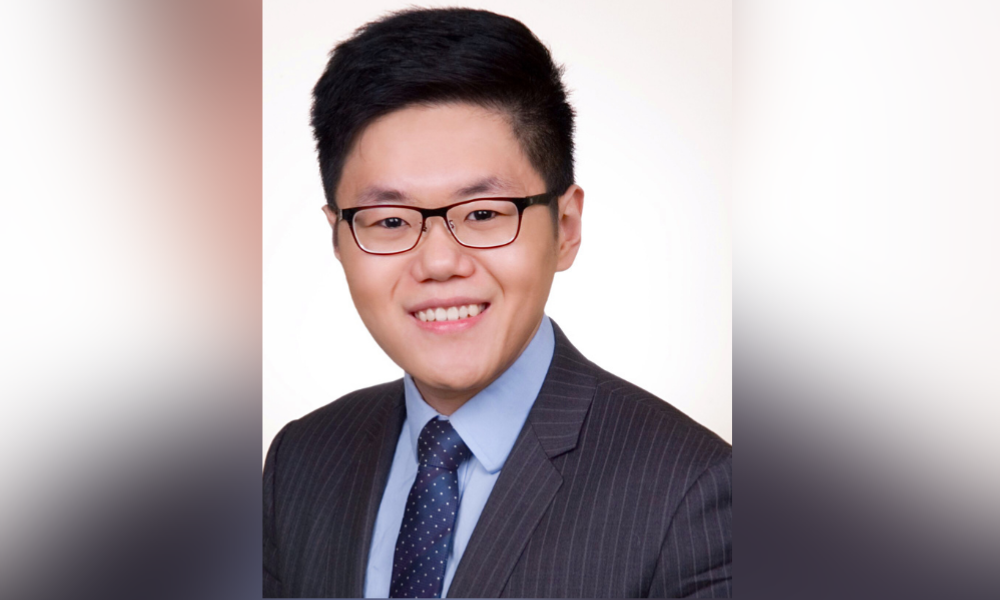Financial planner says industry is doing better to address the community's needs, but more must be done

With Pride Month drawing to a close, it’s worth taking a moment to reflect on all the progress that members of the LGBTQ2+ community have seen over the years. And that progress in acceptance and respect includes one key corner of the financial services industry.
“My experience as an advisor is that clients from the LGBTQ2+ community are being treated more equitably, and with more care and respect by insurers,” says Jeffrey Wu, President of Hao Wu Financial Solutions Inc., Certified Financial Planner at Sun Life.
According to Wu, insurers are making sure to address policyholders by their chosen name, removing honorifics from written messages, and avoid misgendering clients on any part of the underwriting or application process. Today, he says most insurance companies have changed their application process to ask for sex at birth rather than gender, and some insurers don’t even require clients to disclose gender identity during the application process anymore.
Another welcome development is that due to medical advancements, more HIV-positive individuals are getting approved for insurance policies based on individual circumstances, compared to before when their case would be refused outright. At his practice, Wu says he’s been able to help several HIV-positive clients get an insurance product that they never thought they’d be able to get just a few years ago.
“I feel like advisors are increasingly open to talking about diversity, and there’s more visibility and training on how to work with a diverse clientele, particularly with the LGBTQ2+ community,” Wu says. “We still have a long way to go, but as those conversations get more normalized and advisors get more skilled at navigating them, I feel that LGBTQ2+ community members will find it easier to plan for their insurance and financial planning needs.”
Despite all the progress there’s been in the industry and society at large, Wu says a lot of people from the community even now don’t feel comfortable talking openly about their personal finances with a professional, because it would mean discussing their personal life. But the more those doors are kept closed, he says, the more at risk they are of not getting the proper advice to reach their financial goals and achieve true financial well-being.
Read next: You can protect your money and your health with the right health insurance
Wu also observes that individuals who have gone through one or more surgeries, or changed medications, or have mental health issues are more likely to be refused or charged higher premiums with a rating at the end of the application process. “Those conditions aren’t specific to the LGBTQ2+ community,” Wu acknowledges, “but historically speaking, it’s just more likely to happen to certain members of the community, after assessing the overall risk of a particular client.'
Beyond that, he perceives an imbalance when it comes to health benefits offered through group plans and those available through personal health insurance. In recent years, he says certain providers of group benefits plans in Canada have introduced new types of coverage to address the needs of LGBTQ2+ members. As an example, he says Sun Life pioneered extended healthcare coverage in 2019 under which people going through gender affirmation surgery could claim financial support and reimburse certain expenses through their workplace plan. And while not specific to the community, he’s also seeing more LGBTQ2+ persons getting access to group benefits around family building programs to provide financial support for employees that want to go into adoption and surrogacy.
“Right now, I don't see those benefits and coverage being made available on a personal insurance level,” he says. “I think it can be very interesting to have individual products and personal health insurance that can cover certain expenses associated with these challenges in the future.”
Like many others, Wu is very appreciative of all the events and messages from companies celebrating authenticity, visibility, and affirming equal rights for the community during Pride Month. Personally, he’s also met many cis, heterosexual individuals who are becoming more educated and learning how to be allies to the community.
Importantly, Wu wants to emphasize that LGBTQ2+ clients want to be treated the same and feel secure when they initiate conversations with financial professionals. He encourages all advisors to establish a welcoming atmosphere, a safe space where clients can feel they can open up about everything without fear of being judged based on their differences from the socially accepted idea of being normal. Asking the client how they want to be addressed instead of assuming their gender, or asking if they have a spouse rather than a husband or wife, can go a long way, he adds.
“The LGBTQ2+ community is evolving. More and more community members in this generation are planning out their lives and finances, and having their families through the different doorways like adoption and surrogacy. It’s so different from decades ago, when most community members had no prospect of having their own family,” Wu says. “Those changing needs lend themselves naturally to financial planning, so I believe the advisory community will grow to more with the LGBTQ2+ community members, and we're certainly at the beginning stage of this evolution.”



